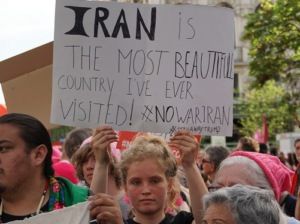Opinion
Danish Capital in 2018: Iran impact so much more than an inconvenience
Neil Smith
This article is more than 7 years old.

2018’s most unpopular decision, but then trumped at the G7 (photo: Miguel Discart)
President Trump has made several controversial decisions in international affairs since his inauguration, but pulling out of the Iran nuclear deal (JCPOA) is likely to be the most consequential.
So far, the United States has no more detailed a replacement plan than to try and strangle Iran’s economy and hope the country capitulates.
The West’s rogue agent
To recap, all the evidence suggested Iran was complying with the deal, and none of the other seven parties wished to exit the 2014 deal, but said they would consider the president’s concerns.
The impact of the US exit will be felt not only in the Middle East, which will become even more unstable, but also in the global financial set-up.
Europeans have been comfortable with the US as the Western hegemon because they were confident it would use its power responsibly – and, by and large, it has done.
But this latest decision is confirmation that under President Trump’s leadership the US is no longer a good faith player within the context of the traditional framework.
A world without dollars?
For the US will not only prevent its own companies from doing business with Iran – this would be within its moral right as a sovereign nation – it will bring the full power of the US financial system to bear on foreign companies doing business with Iran.
In the modern financial system, the American system is omnipotent – anyone looking to trade in the main global reserve currency (the dollar) or in the major commodity (oil) can’t avoid it.
This, coupled with the size of the US domestic market, means most European companies will have to pull out of Iran.
Trump accused Iran of (nuclear) “blackmail”, but what he is proposing to do to Europe seems eerily similar.
Road ahead is bleak
Therefore, the discussion in Europe is now about whether funds can avoid the US.
It is unlikely to come to this yet. New financial infrastructure will take time to build, and Europe has little to gain from a full-scale economic conflict with the US.
This is an important moment nonetheless; the realisation in Europe is that the Trump administration will not only put America’s views first, but second and third too.
If the US can no longer be relied upon to behave responsibly, then alternatives need to be explored.
And this is likely to lead to a more disparate, fragmented world in the long run.

About
Neil Smith
Neil is a Scottish-educated lawyer with 15 years’ experience in corporate structuring and general commercial matters. Based in Copenhagen, he primarily advises on international deals. Out of the office his interests include sport and politics. His column explores topical international financial and economic issues from a Danish perspective.










































